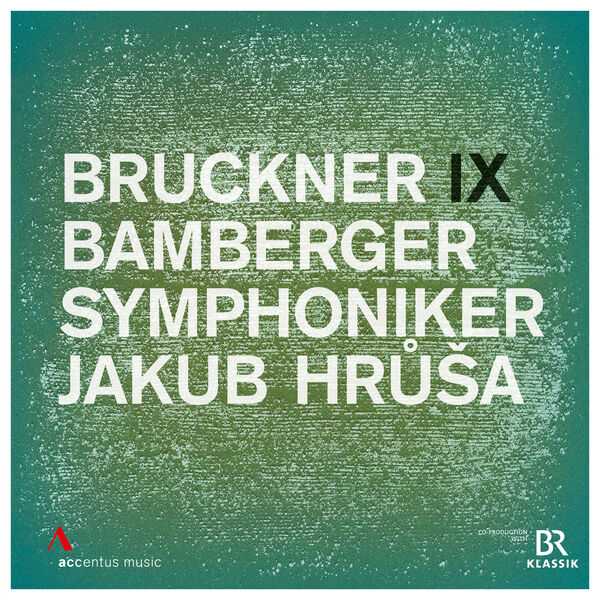

Composer: Anton Bruckner
Orchestra: Bamberger Symphoniker
Conductor: Jakub Hrůša
Format: FLAC (tracks)
Label: Accentus Music
Catalogue: ACC30605
Release: 2024
Size: 1 GB
Recovery: +3%
Scan: cover
Symphony No. 9 in D Minor
01. I. (Feierlich, misterioso)
02. II. Scherzo. Bewegt, lebhaft – Trio. Schnell
03. III. Adagio. Langsam, feierlich
The sincerity and at the same time emotionality of Anton Bruckner’s musical thoughts create an inimitable magnetism that makes one “forget” time in the very best sense of the word. Anyone who wants to approach Bruckner only analytically will find their mind boggled, especially at the first encounter. His great power is a certain “transcendental charm” that is common to all his symphonies. In 2024, the music world celebrates the 200th anniversary of Anton Bruckner’s birth on September 4, 1824. On this occasion, the Bamberg Symphony – an orchestra well-versed in the interpretation of Bruckner’s symphonic cosmos – and their music director Jakub Hrůša present a new recording of the composer’s last and unfinished symphony, his Ninth. On 30 November 1894, Bruckner completed the third movement of his Ninth symphony, which, like all of its predecessors, was laid out in four movements. Work on the finale began on 24 May 1895, around 16 months before his death. He composed the first 172 bars of the movement in full, after which the score is at least partially orchestrated for a further 200 bars. Although a playable version of the finale of Bruckner’s Symphony No. 9 is now available, in practical life the three-movement torso has become the norm. It seems as if the non-completion paradoxically claims its place. The Austrian critic and musicologist Walter Weidringer wrote that the Ninth “may be taken as one of those examples from music history that prove that even fragments can display a degree of completion which no longer seems capable of improvement.”



